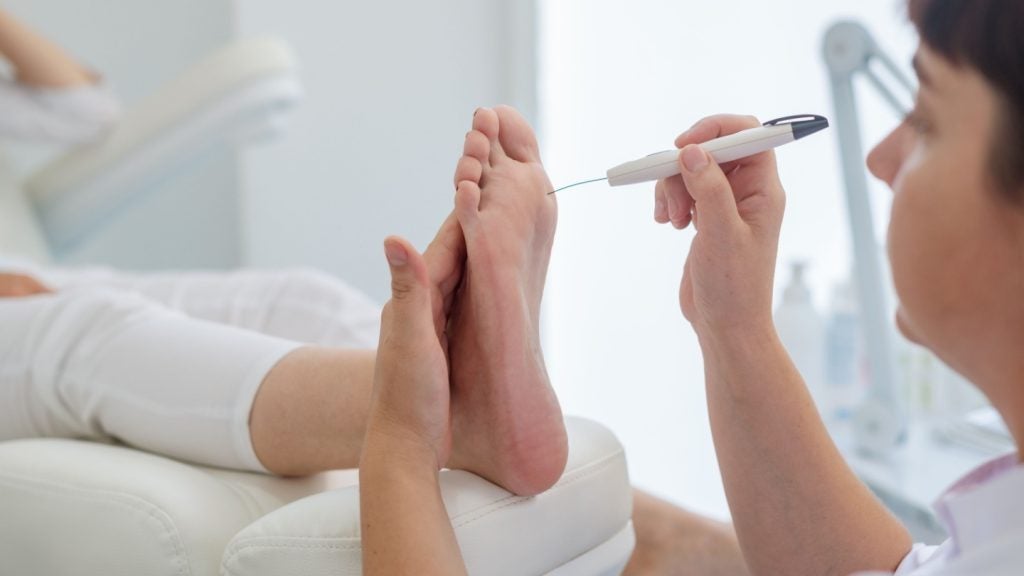
Hospital managers across the UK are being urged to take a firm and consistent stand on identifying and tracking issues of sexual misconduct.
Experts are speaking out following a recent report that highlighted how nearly one in three NHS female surgeons across the UK have been sexually assaulted, offered promotions in exchange for sexual favours, or even raped by a colleague.
The report and a survey, produced by two universities alongside the Working Party on Sexual Misconduct in Surgery (WPSMS) and published by the British Journal of Surgery (BJS) identified a pattern of serious sexual misconduct committed by senior male staff at hospitals across the country, with as many as 63.3 per cent of women reporting being the target of some form of sexual harassment.
The analysis, titled: “Sexual harassment, sexual assault and rape by colleagues in the surgical workforce, and how women and men are living different realities” was authored alongside the University of Exeter and the University of Surrey.
The survey found that as many as 89.5 per cent of female respondents and 81 per cent of male respondents admitted bearing witness to some form of sexual harassment among colleagues over the past five years.
It also revealed that of those who reported being the target of sexual harassment, 29.9 per cent reported some form of physical assault, ranging from unwanted physical contact to instances of rape. Additionally, 10.9 per cent reported being assaulted in exchange for career opportunities.
How well do you really know your competitors?
Access the most comprehensive Company Profiles on the market, powered by GlobalData. Save hours of research. Gain competitive edge.

Thank you!
Your download email will arrive shortly
Not ready to buy yet? Download a free sample
We are confident about the unique quality of our Company Profiles. However, we want you to make the most beneficial decision for your business, so we offer a free sample that you can download by submitting the below form
By GlobalDataResponding to the report, a spokesperson for the Royal College of Surgeons said: “We have zero tolerance for sexual misconduct and are committed to playing our part in eradicating this behaviour in surgery and healthcare. We have been wholly supportive of the research and welcome the WPSMS report and its recommendations.”
The report also contained anecdotal responses from several participants, detailing the abuse they had witnessed or been subjected to. One such comment included in the report stated: “When I needed senior support overnight with unwell patients, this was refused by seniors, as they thought I had been the one to report (the perpetrator) for sexual misconduct. I wasn’t the one who reported him.”
The report follows shortly after the General Medical Council updated their Good Medical Practice 2024 guidelines. The guidelines read: “You must not act in a sexual way towards colleagues with the effect or purpose of causing offence, embarrassment, humiliation or distress.”
The guidelines strongly suggest that anyone who sees or is affected by inappropriate sexual behaviour should report it, but the report details how many members of staff have avoided reporting their experiences out of concern that it would impact their careers. Verbal and written comments or sharing images with a colleague are also considered to be a breach of the guidelines.
Additionally, these sorts of events can have a drastic impact on staff’s ability to effectively perform their roles. Co-author of the report, Rosalind Searle, detailed how allowing this type of abuse to occur in a hospital can drastically impact how staff perceive a medical facility, as well as impacting recruitment and staff retention.
Speaking with Hospital Management, Searle said: “I think what [the report] is really flagging is the need to pay attention to people who are telling you about things that are going on in your hospital, however unpleasant that might be, however much you might view that as a reputation risk.
“This is about frog boiling. So, people over a period of time don’t notice that this is going on in their space and it’s only when, sadly, the light from research and other surveys illuminates what’s going on, that they suddenly realise.”
These kinds of incidents open hospitals and medical facilities up to several serious legal and social ramifications that can drastically impact a hospital’s ability to implement its services effectively.
Commenting on the report, consultant solicitor for the British Medical Association Law, Clayton Williams, said that it could be a potential pitfall for managers if they are seen not to have reasonably done anything about a complaint of sexual assault or harassment in a clinical setting.
Williams said: “We live in very different times now, whereas [ignoring it] might have happened some years ago, it’s certainly not my experience now. Trust across the country take such allegations extremely seriously. If there are allegations against doctors or staff the advice I would always give is that you have to follow your well-trodden policies and procedures. Which all trusts will have in place.
“If an individual who has been sexually assaulted finds that the employed had done nothing, they do have mechanisms within employment tribunal where they can bring the employer to book over that. If the employee has been sexually discriminated against in some way or they have been let down in some way, there’s a whole load of options available to them in an employment tribunal.
“If an individual is not receiving any assistance from their employer then the best advice is for them to go to the trade union. Another option is that if this is a particularly widespread issue in a specific area or a trust, there will be whistleblowing policies in place, which can be another avenue for someone who is disgruntled about how their complaint has been dealt with.”
Rosalind Searle elaborated on how these patterns of abuse are not random, they often follow along the lines of seniority, with more senior members of staff taking advantage of the least senior members on the presumption that they will be less likely to be taken seriously when they do raise a concern.
Searle added: “These are targeted events that happen to people who are being silenced in organisations, and the perpetrator is identifying those people, knowing how the organisation will deal with them.
“So, it’s really important for organisations to have systems in place that allow them to understand what’s going on in their workplaces and to collect that information.”
One means of keeping of keeping track of these kinds of incidents, as suggested by Ms Searle, would be the implementation of registers, keeping a running record of these events so as to better identify and follow the behaviours of abusers.
Searle said: “I think it’s really important for hospitals to collect this information so that they are aware of what’s going on in, in their workplaces. In previous surveys we had done alongside the Guardian, we became aware that many organisations just were not tracking these things. They weren’t seeing it as something.
“But this is important, [abuse] is a repetitive type of behaviour. So, you need to understand and be able to record what’s going on in your workplace. Our paper makes it very clear that it’s a third of women are being sexually assaulted in these workplaces and two out of three are experiencing sexual harassment.”







